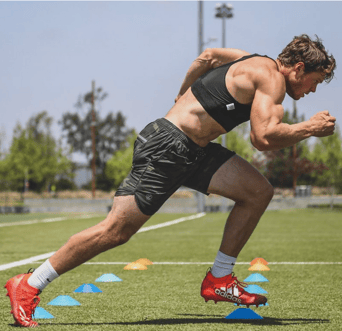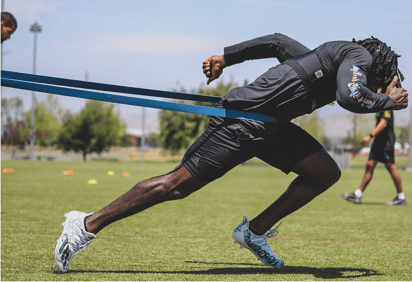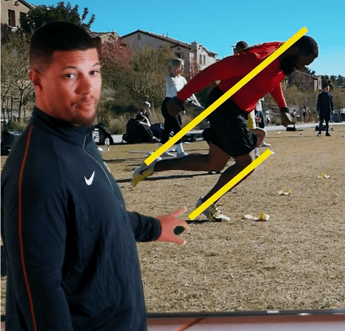Maximize Your Time with 3 Buckets of Speed
“I don’t know where to spend the majority of my focus when training speed with my athletes”
You should make time in your programming for speed training, it is that important! Check out the results working with the Togethership after implementing speed training for instance.
There’s only so much time in a session, and one of the hardest parts of being a coach is learning how to maximize the time that we have when we’re with our athletes.
That's why I use the 3 buckets of speed, specifically looking at off-season training for youth athletes.
Keep in mind, this should just provide you a framework. Each athlete and situation may require changes or tweaks based on the circumstances you’re facing.
Prioritizing the 3 Buckets of Speed
The 3 buckets of speed are stimulus, physical, and technical. Most of the speed work we do can be grouped into one of those 3 buckets.
To improve speed with youth athletes during offseason training, we prioritize the buckets in the following way:
-
Stimulus
-
Physical
-
Technical
If they can’t perform the drills due to a lack of strength or mobility, it doesn’t make much sense to coach the technical qualities too much until they can get there. On the other side of things, working with youth athletes gives you the unique opportunity to break any poor habits before they start to form.
Teaching the technical qualities are still important, even if they are a lower priority than stimulus and the physical bucket.
Although these may be the priorities we look at, they don't have to be in this order when completing a session.
For example, you may include some technical drills as part of the warmup, or it could bleed into some of the other areas being focused on for that day.
Now let's jump into each bucket:

Stimulus
This one is pretty simple. Whether it’s in season or off-season, youth athletes (all athletes really) need to spend time running fast.
This is the highest priority. Strictly sprinting. Fast.
There are guidelines here, of course. Athletes need to be hitting at least 90% or higher of their peak velocity, but it should be spaced between days and the rest of their training schedule should be taken into account.

Physical
For youth athletes in off-season training, we're mainly looking at two things on the physical side: Resisted Sprinting and Jumping.
Resisted sprinting will help in acceleration. It will help athletes accelerate to higher speeds earlier. Over time, jumping will help produce faster ground contact times by increasing the athlete’s ability to produce forces fast.

Technical
The technical bucket will be drills, different cues, and technique work.
As mentioned above, some youth athletes don’t have the strength or mobility to complete some of the technical work. But as they get stronger, this can be an important time for athletes to develop good tendencies.
We often give kids the analogy of making this a habit as normal as breathing. We want these technical qualities to eventually be something that they aren’t even thinking about.
The point to take away from the technical bucket is repetition, especially as some of these movements may be brand new to a youth athlete.
As a coach, we understand where a lot of us run into issues. Maximizing athlete performance is really important, and with limited time with our athletes, there can be grey area knowing where is best to spend it.
When it comes to speed for youth athletes, we recommend prioritizing the stimulus first, then the physical, then technical. Keeping in mind that all are important factors when helping athletes get faster.
Want to keep learning about the 3 Buckets of Speed? Check out this article: How to Improve Athlete Speed? Power.